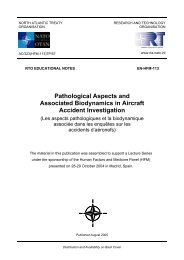DIAGNOZA SPOŁECZNA 2015
Diagnoza_raport_2015
Diagnoza_raport_2015
You also want an ePaper? Increase the reach of your titles
YUMPU automatically turns print PDFs into web optimized ePapers that Google loves.
Diagnoza społeczna <strong>2015</strong> 313<br />
Myers D. G. (1993). The pursuit of happiness. New York: Avon Books.<br />
Myers D. G. (2004). Bliskie związki a jakość życia. W: J. Czapiński (red.), Psychologia pozytywna (ss 204-234).<br />
Warszawa: Wydawnictwo Naukowe PWN.<br />
Myrskylä, M., & Margolis, R. (2014). Happiness: Before and after the kids. Demography, 51, 1843–1866.<br />
Nesse, R. M., Williams, G. C. (1994). Why we get sick. New York: New York Times Books.<br />
Nesse, R. M., Williams, G. C. (1994). Why we get sick. New York: New York Times Books.<br />
Oswald, A. and Powdthavee, N. (2008). ‘Does happiness adapt? A longitudinal study of disability with implications<br />
for economists and judges’. Journal of Public Economics, Vol. 92, pp. 1061-1077.<br />
Peeters, G., Czapiński, J. (1990). Positive-negative asymmetry in evaluations: The distinction between affective and<br />
informational negativity effects. [w:] W. Stroebe, M. Hewstone (red.), European Review of Social Psychology<br />
(Vol. 1, 33-60). London: Wiley.<br />
Penedo, F. J., & Dahn, J. R. (2005). Exercise and well-being: A review of mental and physical health benefits.<br />
Current Opinion in Psychiatry, 18, 189-193.<br />
Penedo, F. J., & Dahn, J. R. (2005). Exercise and well-being: A review of mental and physical health benefits.<br />
Current Opinion in Psychiatry, 18, 189-193.<br />
Pollmann-Scchult M. (2014). Parenthood and Life Satisfaction: Why Don’t Children Make People Happy? Journal<br />
of Marriage and Family, 76, 319–336. DOI:10.1111/jomf.12095.<br />
Postman, N. (1985). Amusing ourselves to death. New York: Penguin.<br />
Psacharopoulos G., Patrinos H. A. (2004).Human capital and rates of return. W: G. Johnes, J. Johnes (red.),<br />
International handbook on the economics of education (ss. 1-57). Cheltenham, UK: Edward Elgar Publishing<br />
Ltd.<br />
Richins M., Dawson S. (1992). A consumer values orientation for materialism and its measurement: scale<br />
development and validation. Journal of Consumer Research, 19, 303-316.<br />
Roberts B. W., Caspi A., Moffitt T.E. (2003). Work experiences and personality development in young adulthood,<br />
Journal of Personality and Social Psychology, 84, 582–593.<br />
Robinson J.P., Martin S. (2008). What do happy people do? Social Indicators Research, 89, 565-571.<br />
Rogers C.R. (1961). On becoming a person. Boston: Houghton Mifflin.<br />
Ross, C. E. and D. Hayes (1988). "Exercise and pyschologic well-being in the community." American Journal of<br />
Epidemiology 127(4): 762-771.<br />
Ross, C. E., Hayes, D. (1988). Exercise and psychologic well-being in the community. American Journal of<br />
Epidemiology, 127, 762-771.<br />
Ryff C.D. (1989). Happiness is everything , or is it? Explorations on the meaning of psychological well-being,<br />
Journal of Personality and Social Psychology, 57,1069-1081.<br />
Ryff C.D., Singer B. (2004). Paradoksy kondycji ludzkiej: dobrostan i zdrowie na drodze ku śmierci. W: J.<br />
Czapiński (red.), Psychologia pozytywna (ss. 147-162). Warszawa: Wydawnictwo Naukowe PWN.<br />
Schwarzer R., Leppin A. (1989). Social suport and health: A meta-analysis. Psychology and Health, 3, 1-15.<br />
Snyder C. R., Lopez S. J. (2007). Positive psychology. Thousand Oaks, CA: Sage Publications.<br />
Snyder C. R., Lopez S. J. (red.) (2002). Handbook of positive psychology. Oxford: Oxford University Press.<br />
Stanca, L. (2012). Suffer the little children: Measuring the effect of parenthood on well-being worldwide. Journal of<br />
Economic Behavior and Organization, 81, 742-750.<br />
Staw B.M., Sutton R.I., Pelled L.H. (1994). Employee positive emotion and favorable outcomes at the workplace.<br />
Organization Science, 5, 51–71.<br />
Stevenson B., Wolfers J. (2008). Economic growth and subjective well-being: Reassessing the Easterlin Paradox.<br />
Brookings Papers on Economic Activity, Spring, 1-102.<br />
Stutzer, A. and Frey, B.S. (2006). ‘Does Marriage Make People Happy, Or Do Happy People Get Married?’ Journal<br />
of Socio-Economics, vol. 35, pp. 326-347.<br />
Stutzer, A., Bruno S. F. (2006). Does marriage make people happy, or do happy people get married? Journal of<br />
Socioeconomics 35(2): 326–347.<br />
Taylor, S.E. (2011). "Social support: A Review". In M.S. Friedman. The Handbook of Health Psychology. New<br />
York,NY: Oxford University Press. pp. 189–214.<br />
Thayer R. (1987). Energy, tiredness, and tension effects of sugar snack versus moderate exercise. Journal of<br />
Personality and Social Psychology, 52, 119-125.<br />
Tonstad S., Stewart K., Oda K., Tonstad S. (2013). Vegetarian diets and incidence of diabetes in the Adventist<br />
Health Study-2, Nutrition, Metabolism and Cardiovascular Diseases, 23, 292-299<br />
Veenhoven R. (1984). Conditions of happiness. Dordrecht: Kluwer Academic.<br />
Veenhoven R. (1994). World Database of Happiness. Rotterdam: RISBO.<br />
Veenhoven R. (2007). Szczęście jako cel polityki społecznej: zasada największego szczęścia. W: P. A. Linley, S.<br />
Joseph (red.), Psychologia pozytywna w praktyce (s. 413-441). Warszawa: Wydawnictwo Naukowe PWN.<br />
© Rada Monitoringu Społecznego





